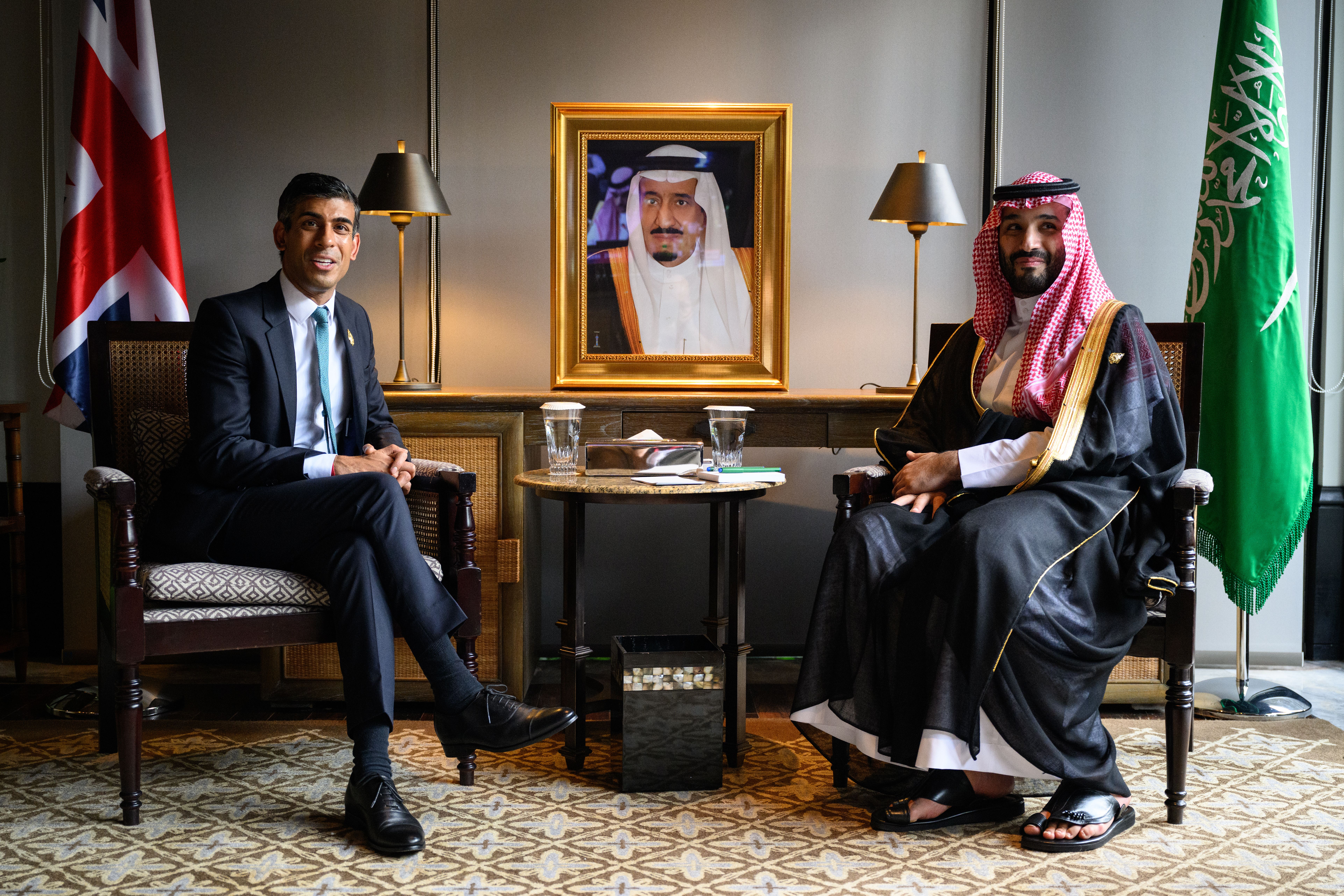Sunak meets Saudi Arabia’s controversial crown prince at G20
The PM was likely to use the encounter to encourage Riyadh to produce more oil and gas in response to the disruption of supplies from Russia.

Rishi Sunak spoke of his wish to “work together” to the benefit of the UK and Saudi Arabia as he met the kingdom’s crown prince and prime minister Mohammed bin Salman on the sidelines of the G20 summit in Bali.
The men held talks, their first interaction since Prime Minister Mr Sunak took office, at a luxury resort hotel on the tropical island on the first day of the gathering of leaders of the world’s major economies.
The meeting was controversial as the Gulf state’s day-to-day leader, widely known as MBS, is accused of ordering the assassination of journalist Jamal Khashoggi at the Saudi consulate in Istanbul in 2018.
Speaking ahead of their full bilateral meeting, Mr Sunak said he looked forward to “working together to the benefit of both of our countries and indeed tackle some of these global challenges that we were talking about this morning”.
Mr Sunak was likely to use the encounter to encourage Riyadh to produce more oil and gas in response to the disruption of supplies from Russia.
He was also expected to raise the human rights record of the kingdom as it continues to carry out executions.
Moscow’s invasion of Ukraine and its impact on the global economy, fuelling energy shortages worldwide, was also likely to come up.
Saudi Arabia, which leads the Opec alliance of oil-producing nations, has faced criticism for agreeing to cut production starting in November, in the face of global shortages.
The move strained relations with western nations including the US, which said the cut effectively benefits Russia, another Opec member, at a time when they are trying to choke off Moscow’s oil revenue to undercut its war in Ukraine.
Mr Sunak’s predecessor Boris Johnson faced accusations of going from “dictator to dictator” to find new fuel sources when he visited Saudi Arabia, the world’s largest oil exporter, and the United Arab Emirates earlier this year.
Bookmark popover
Removed from bookmarks